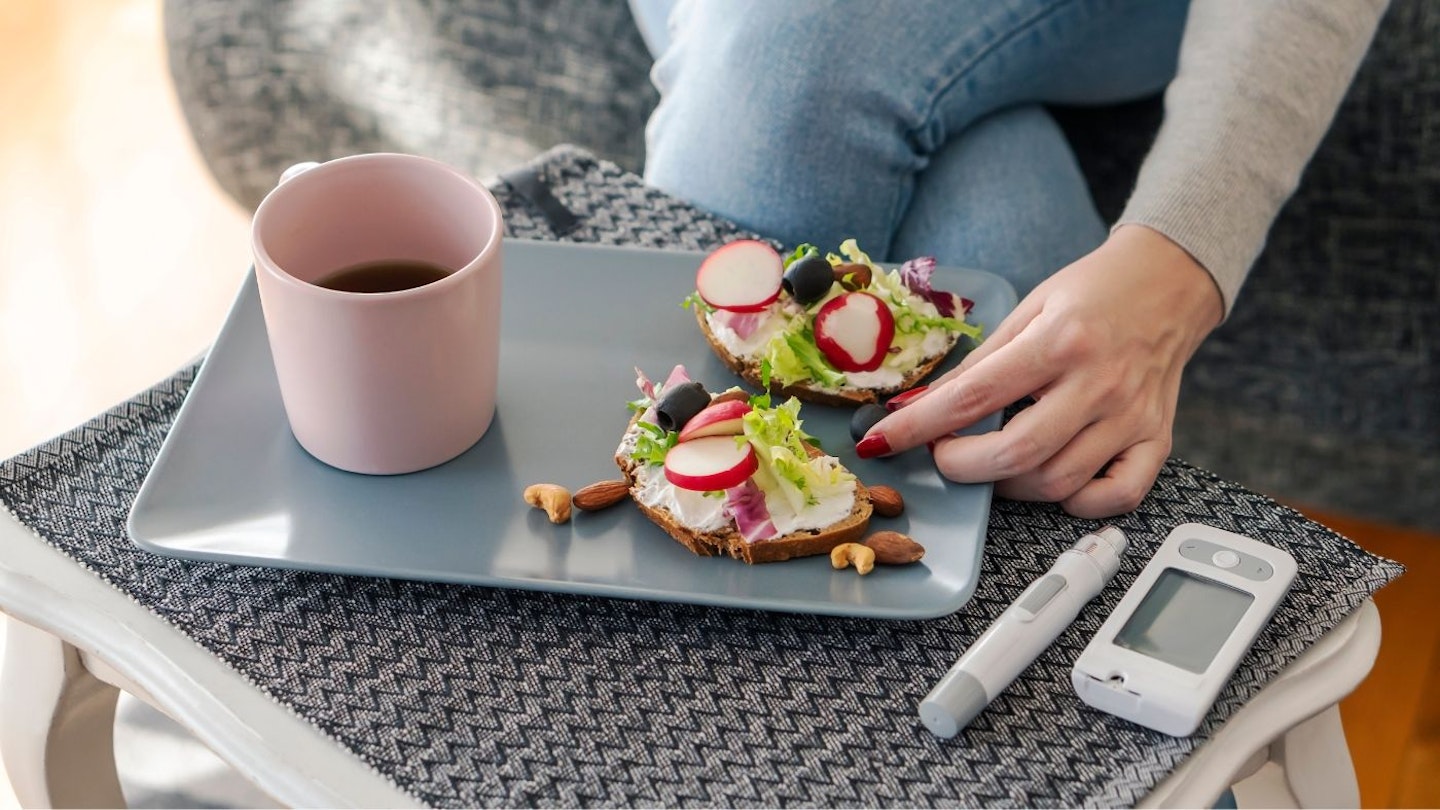Diabetes is a condition that causes a person's blood sugar levels (glucose) to become too high, and if you have type 2, it means that your body has become resistant to the insulin your pancreas is making. If you suffer from the condition, it's important to maintain a healthy diet and a type 2 diabetes food list can help with this.
Type 2 diabetes diet
The NHS says that there's nothing you can't eat if you have type 2 diabetes, but there are certain foods you should limit, which are sugar, fat and salt.
Diabetes type 2 food list
Those with type 2 diabetes should focus on foods that help manage your blood sugar levels. This is with the aim to promote healthy weight, and reduce the risk of diabetes-related complications. Here's a list of foods that might help with this.

Whole grains
Whole grains contain lots of fibre and nutrients and have a lower glycaemic index (GI) in comparison to refined grains, which helps in managing blood sugar levels.
•Quinoa
•Brown rice
•Whole oats
Vegetables
Vegetables, particularly non-starchy ones, are low in calories and carbs but high in vitamins, minerals, fibre and antioxidants. Aim to fill half your plate with some of these.
•Leafy greens (spinach and kale)
•Broccoli
•Cauliflower
•Tomatoes
Fruits
Fruits give your body the essential vitamins, minerals and fibre it needs to keep working efficiently. Choose whole fruits over fruit juices and smoothies to keep your blood sugar levels in check.
•Cherries
•Apples
•Pears
•Oranges
•Peaches
Proteins
Lean proteins will help with muscle maintenance without significantly changing your blood sugar levels.
•Fish, especially fish rich in omega-3 fatty acids (salmon, mackerel, sardines)
•Chicken or turkey breast
•Beans
•Tofu
•Eggs
•Nuts and seeds
Dairy or alternatives
Opt for low-fat or fat-free dairy products or their non-dairy alternatives. Here are some great sources of calcium and protein.
•Low-fat or skimmed milk
•Yoghurt (preferably plain or low in sugar)
•Cheese
•Plant-based milk alternatives (we're talking soy, oat or almond milk)
Healthy fats
•Avocados
•Olives and olive oil
•Nuts and seeds
•Fatty fish
Type 2 diabetes breakfast ideas
Whether you follow a type 2 diabetes diet or not, it's important to start your day with a healthy breakfast. Here are some of our favourite ideas:
•Natural unsweetened yoghurt and fruit
•Wholegrain cereal with milk
•Slices of avocado with a boiled egg
•Porridge with fruit or seeds
•Wholegrain toast with olive oil-based spread
•Muesli, shredded wheat or wheat biscuits
•Smoked salmon and cottage cheese bagel
Type 2 diabetes lunch ideas
A healthy and filling lunch can help you to avoid reaching for fatty foods and sugary snacks. We've found a selection of tasty options for you to try:
•Soup with wholegrain toast or a roll
•Pasta salad
•Salad with either chicken or tuna
•Chicken tortilla
•Open sandwich (cheese, hummus, egg, Quorn sausage, cottage cheese, tuna and sweetcorn)
•Sweet potato
•Tuna or chicken sandwich with salad
•Beetroot hummus, crackers and veggie sticks
Type 2 diabetes dinner ideas
We have plenty of quick and healthy dinner ideas and inspiration:
•Roast chicken, vegetables and potatoes
•Chickpea curry with brown rice
•Salmon and vegetables
•Turkey burger
•Chicken tortilla and salad
•Vegetable lasagne and salad
•Cauliflower pizza
•Turkey meatballs and pasta
•Tomato tarts
•Chicken and mushroom pie
You can find a wide range of recipes on the Diabetes UK website that have been approved by a specialist team of dietitians.

Type 2 diabetes and alcohol
Drinking heavily has been known to reduce the body's sensitivity to insulin (according to Drinkaware) and can therefore increase your risk of getting type 2 diabetes if you don't have it already; it can lead to chronic pancreatitis.
Try cutting down your consumption or switch to alcohol-free drinks.
Type 2 diabetes symptoms
According to the NHS, a lot of people with type 2 diabetes don't realise that they have it as the symptoms can be easy to overlook. The main symptoms include:
•Constant thirst
•Weeing more than usual
•Feeling very tired
•Losing weight (without trying)
•Blurred vision
•Wounds and cuts that take ages to heal
•Repeatedly getting thrush or having itching around the vagina or penis
Celebrities with diabetes
Tom Hanks - Hollywood star Tom Hanks was diagnosed with type 2 diabetes in 2013. According to Diabetes.co.uk, his doctor had told him, “You know those high blood sugar numbers you’ve been dealing with since you were 36, well you’ve graduated. You’ve got type 2 diabetes, young man.”
James Norton - The actor James Norton has always been very open about living with type 1 diabetes and often posts about it to raise awareness and show people that it doesn't stop him from choosing certain jobs (such as long plays).
Arabella Horspool is a Commercial Content Writer for Yours at Bauer Media. She's a bookworm who enjoys cooking and spending time with her many pets.
